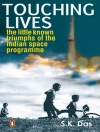This book provides an overview of important trends and developments in logistics and supply chain research, making them available to practitioners, while also serving as a point of reference for academicians. Operations and logistics are cornerstones of modern supply chains that in turn are essential for global business and economics. The composition, character and importance of supply chains and networks are rapidly changing, due to technological innovations such as Information and Communication Technologies, Sensors and Robotics, Internet of Things, and Additive Manufacturing, to name a few (often referred to as Industry 4.0). Societal developments such as environmental consciousness, urbanization or the optimal use of scarce resources are also impacting how supply chain networks are configured and operated. As a result, future supply chains will not just be assessed in terms of cost-effectiveness and speed, but also the need to satisfy agility, resilience and sustainability requirements. To face these challenges, an understanding of the basic as well as more advanced concepts and recent innovations is essential in building competitive and sustainable supply chains and, as part of that, logistics and operations. These span multiple disciplines and geographies, making them interdisciplinary and international. Therefore, this book contains contributions and views from a variety of experts from multiple countries, and combines management, engineering as well as basic information technology and social concepts. In particular, it aims to:
- provide a comprehensive guide for all relevant and major logistics, operations, and supply chain management topics in teaching and business practice
- address three levels of expertise, i.e., concepts and principles at a basic (undergraduate, BS) level, more advanced topics at a graduate level (MS), and finally recent (state-of-the-art)developments at a research level. In particular the latter serve to present a window on current and future (potential) logistics innovations in the different thematic fields for both researchers and top business practitioners
- integrate a textbook approach with matching case studies for effective teaching and learning
- discuss multiple international perspectives in order to represent adequately the true global nature of operations, logistics and supply chains.
Tabella dei contenuti
Introductory Chapters.- Key Domains of Supply Chains.- Overarching Topics.- Functions in Production and Logistics.- Models for Operations, Logistics and Supply Chain Management.- New Developments and Special Topics.
Circa l’autore
W. Henk M. Zijm is a full professor in Production and Supply Chain Management at the Department of Industrial Engineering and Business Information Systems at the University of Twente since 1990. Previously, he has been project manager at Philips Electronics in Eindhoven, and professor in Operations Management at the Eindhoven University of Technology. At the University of Twente, he served among others as Director of the Centre for Telematics and Information Technology, Dean of the Faculty of Electrical Engineering, Mathematics and Computer Science, and Rector Magnificus (Vice Chancellor). Professor Zijm is also a past president of ISIR (the International Society for Inventory Research, Budapest). In 2010, he was appointed as scientific director of the Dutch Institute for Advanced Logistics (DINALOG), a national institute responsible for executing the Dutch government imposed innovation program on logistics and supply chain management. Between 2014and 2016 he also served as vice-chair of the European Technology Platform for Logistics, which helps to design roadmaps that drive the Horizon 2020 research and innovation program in Transport and Logistics. Professor Zijm has published more than 120 articles in international refereed scientific journals and is the (co-)author of three books. He has been a consultant to a wide variety of industrial organisations in the Netherlands and in Europe.Matthias Klumpp is a full professor in logistics at FOM University of Applied Sciences Essen and research group leader in production and logistics at the University of Duisburg-Essen and the Fraunhofer Institute for Material Flow and Logistics in Dortmund (Germany). His research is addressing primarily topics regarding artificial intelligence and digital business concepts, sustainability as well as qualification and training in the supply chain and logistics field. He has held several visiting and policy positions e.g. at the Dalle Molle Institute for Artificial Intelligence (University of Lugano, Switzerland), University of Twente (Netherlands), European University Institute (Florence School of Regulation) and for the ESCO Expert Group on Qualification in Logistics for the European Commission (Brussels, Belgium).
Alberto Regattieri is a full professor in Logistics and Head of the Management Engineering Master Course at the University of Bologna (Italy). His current research interests include the optimal design of manufacturing systems, innovative approaches to design and manage Supply Chains, Industrial Logistics, control and maintenance of industrial plants. He is/was responsible of several research projects in co-operation with – and funded by – European Commission, private and public companies, universities and international research centers regarding supply chain and logistics fields. He published more than 170 scientific papers.
Sunderesh S. Heragu is Regents Professor and Head of the School of Industrial Engineering and Management at Oklahoma State University where he holds the Donald and Cathey Humphreys Chair. Previously, he was the Duthie Chair in Engineering Logistics and Director of the Logistics and Distribution Institute (Lo DI) at the University of Louisville. He has also served as Professor of at Rensselaer Polytechnic Institute, Assistant Professor in State University of New York, Plattsburgh, and held visiting appointments at: State University of New York, Buffalo; Technical University of Eindhoven, the Netherlands; University of Twente, the Netherlands; and IBM’s Thomas J. Watson Research Center in Yorktown Heights, NY. He is author of the 4th edition of Facilities Design and has authored or co-authored over two hundred articles. He has served as Principal investigator or co-investigator on research projects totaling over $20 million funded by federal agencies such as the Department of Homeland Security, National Science Foundation, Defense Logistics Agency and private companies such as General Electric. Dr. Heragu is a Fellow of the Institute of Industrial and Systems Engineers (IISE) and has received IISE’s David F. Baker Distinguished Research award, Award for Technical Innovation in Industrial Engineering.












